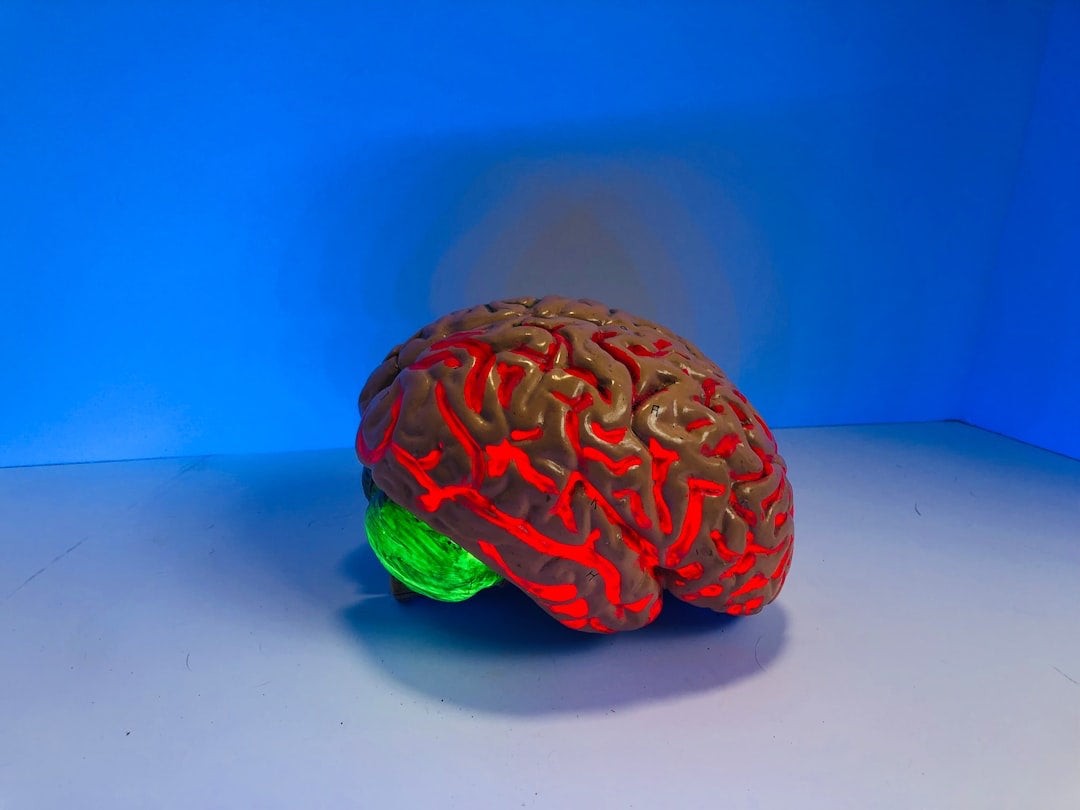
Beyond the Gym: Unveiling the Surprising Creatine Benefits for Mind and Body
Share
Creatine has long been revered in the fitness world for its impressive ability to boost athletic performance and facilitate muscle growth, yet its impact reaches far beyond these well-known benefits. Recent scientific studies have revealed that creatine, particularly creatine monohydrate, offers a range of cognitive advantages, enhancing memory and mental clarity while providing neuroprotective properties that may guard against neurodegenerative diseases. This multifaceted supplement is not only a powerhouse for athletes but also a valuable asset for health-conscious individuals seeking to optimize both their physical and mental prowess. In the following discussion, we'll uncover the surprising creatine benefits that make it an essential addition to any wellness regimen, while also addressing potential creatine side effects with expert insights and customer testimonials.

Creatine: Beyond Muscle Growth
Enhancing Athletic Performance
Creatine is well-known for its ability to elevate athletic performance, making it a staple in the world of sports supplements. At its core, creatine monohydrate works by increasing the availability of ATP, the primary energy carrier in cells, especially during short bursts of high-intensity activity. This means athletes can experience improved strength, speed, and endurance. Studies have consistently shown that creatine supplementation can lead to increased muscle mass and enhanced performance in activities like weightlifting, sprinting, and high-intensity interval training. Furthermore, its benefits extend to recovery, reducing muscle cell damage and inflammation following exercise. This makes creatine an essential supplement not only for bodybuilders but for anyone looking to improve their athletic capabilities. As athletes strive for peak performance, creatine remains a reliable and scientifically backed option to help them reach their goals.
Supporting Muscle Development
Creatine monohydrate plays a pivotal role in muscle development, making it a favorite among fitness enthusiasts and bodybuilders. By enhancing the storage of phosphocreatine in muscles, creatine allows for more sustained energy release during high-intensity workouts. This increased energy availability helps athletes push through plateaus, lift heavier weights, and perform more repetitions. Over time, these incremental improvements contribute to significant gains in muscle mass. Additionally, creatine promotes cellular hydration, which not only supports muscle fullness but also creates an optimal environment for muscle protein synthesis. This anabolic effect accelerates muscle repair and growth, ensuring that individuals see tangible results from their training efforts. Combining creatine with a balanced diet and consistent workout regimen can maximize these muscle growth benefits, making it an indispensable supplement for anyone serious about building strength and size.

Cognitive Benefits of Creatine
Boosting Memory and Clarity
Recent research has unveiled that creatine supplementation can significantly enhance cognitive functions, including memory and mental clarity. Creatine assists in maintaining optimal energy levels in brain cells by replenishing ATP, which is crucial for sustaining mental tasks. Studies have shown that individuals who supplement with creatine monohydrate often experience improvements in short-term memory, problem-solving skills, and overall cognitive processing speed. This benefit is particularly noticeable in scenarios requiring intense mental focus or during periods of sleep deprivation. Moreover, vegetarians and individuals with lower baseline levels of creatine in their diet might observe even more pronounced cognitive enhancements. Integrating creatine into daily routines can thus serve as an effective strategy for those seeking to boost their mental performance. This makes creatine not just a supplement for athletes, but a valuable tool for anyone looking to sharpen their mental acuity and stay ahead in intellectually demanding environments.

Enhancing Mental Agility
Creatine's influence extends to improving mental agility, offering a compelling advantage for those engaged in tasks that demand quick thinking and adaptability. The supplement's role in bolstering ATP production doesn't just benefit physical endurance but also supports sustained cognitive performance. This is particularly useful in high-pressure situations where mental sharpness is crucial. Studies suggest that creatine supplementation can lead to faster cognitive processing and improved reaction times, making it a potential aid for professionals and students alike. For individuals who face demanding schedules that require rapid decision-making or those in competitive environments, incorporating creatine into their regimens can provide an edge. Moreover, the enhanced energy availability in brain cells helps reduce cognitive fatigue, allowing for prolonged periods of mental concentration. By optimizing brain function, creatine aids in maintaining a high level of mental agility, ensuring users can navigate complex challenges with ease.

Neuroprotective Properties of Creatine
Guarding Against Neurodegeneration
Creatine's neuroprotective properties offer promising benefits in guarding against neurodegenerative diseases such as Alzheimer's and Parkinson's. By maintaining higher levels of ATP in brain cells, creatine helps to counteract the energy deficits and oxidative stress that contribute to neuronal damage. Research has indicated that creatine supplementation can reduce the progression of neurodegenerative symptoms and improve overall brain health. This protective effect is vital for aging populations or individuals with a family history of neurological conditions. Additionally, creatine's ability to stabilize cellular membranes and reduce inflammation further supports its role in neuroprotection. These benefits make creatine an appealing supplement for those aiming to preserve cognitive function over the long term. By incorporating creatine monohydrate into their daily routine, individuals can take proactive steps toward maintaining brain health and potentially delaying the onset of debilitating neurological diseases.

Supporting Overall Brain Health
Creatine is increasingly recognized for its role in supporting overall brain health, offering benefits that extend beyond its traditional use in muscle enhancement. By ensuring a steady supply of ATP, creatine helps maintain optimal brain energy metabolism, which is crucial for cognitive function and resilience against stress. This energy boost facilitates vital processes like neurotransmitter synthesis and cellular repair, essential for overall brain vitality. Research suggests that creatine can enhance brain health by improving mood and reducing mental fatigue, making it beneficial for individuals facing chronic stress or mental strain. Furthermore, its antioxidant properties help protect brain cells from oxidative damage, supporting long-term cognitive health. This makes creatine a valuable addition to the wellness routines of those focused on maintaining mental well-being throughout life. By incorporating creatine into daily regimens, individuals can take a proactive approach to safeguarding their brain health, ensuring they remain mentally sharp and resilient.
Exploring Creatine Monohydrate Benefits
Physical Performance Optimization
Creatine monohydrate is widely recognized for its efficacy in optimizing physical performance across various sports and fitness activities. This supplement works by increasing the phosphocreatine stores in muscles, which in turn enhances the production of ATP, the primary energy source during high-intensity exercise. As a result, athletes can experience significant improvements in strength, power, and endurance. Studies have shown that individuals who supplement with creatine monohydrate can lift heavier weights, sprint faster, and recover more quickly between sets. This makes it an indispensable tool for those looking to elevate their physical performance. Additionally, creatine monohydrate supports muscle hydration and volume, further contributing to enhanced performance and muscle growth. Whether you're a seasoned athlete or a fitness enthusiast, incorporating creatine monohydrate into your regimen can lead to noticeable gains, helping you reach and exceed your physical performance goals.

Mental Health Advantages
Creatine monohydrate, while celebrated for its physical performance benefits, also offers promising advantages for mental health. Research indicates that creatine can positively affect mood regulation and mental well-being by supporting brain energy metabolism. This is particularly beneficial in conditions characterized by low energy availability in brain cells, such as depression. By boosting ATP production, creatine helps enhance the brain's capacity to cope with stressors, potentially alleviating symptoms of anxiety and depression. Furthermore, its role in neurotransmitter synthesis may contribute to improved communication between brain cells, fostering better emotional regulation. For individuals experiencing mental fatigue or mood fluctuations, creatine supplementation can provide a noticeable uplift in mental clarity and overall mood. While more research is needed to fully understand the extent of these benefits, current findings suggest that creatine monohydrate could be a valuable adjunct in comprehensive mental health strategies, enhancing both cognitive and emotional resilience.

Understanding Creatine Side Effects
Common Misconceptions
Despite its benefits, creatine is often surrounded by misconceptions that can deter potential users. One prevalent myth is that creatine causes kidney damage or dysfunction. However, numerous studies have shown that creatine supplementation is safe for healthy individuals when taken at recommended dosages. Another frequent misunderstanding is the belief that creatine leads to excessive water retention and bloating. While creatine does increase water content in muscles, it primarily aids in muscle hydration rather than causing overall bloating. Moreover, some fear that creatine usage may lead to muscle cramping and dehydration. In reality, research indicates that creatine can help reduce the risk of these issues by enhancing muscle energy metabolism. Lastly, concerns about creatine causing weight gain are often overstated, as any increase is typically due to muscle mass rather than fat. Understanding these misconceptions can help individuals make informed decisions about incorporating creatine into their fitness and wellness routines.

Safe Supplementation Practices
To maximize the benefits of creatine while minimizing potential side effects, adopting safe supplementation practices is crucial. First, it is important to adhere to recommended dosages, typically starting with a loading phase of 20 grams per day divided into four servings for 5-7 days, followed by a maintenance dose of 3-5 grams per day. This approach helps saturate muscle creatine stores efficiently. Hydration is another key factor; since creatine draws water into muscle cells, maintaining adequate fluid intake is essential to prevent dehydration. Individuals should also consider consulting with a healthcare professional before beginning supplementation, especially if they have pre-existing medical conditions or are taking other medications. Additionally, choosing high-quality creatine monohydrate from reputable brands ensures purity and efficacy. By following these guidelines, users can safely incorporate creatine into their fitness and wellness routines, enjoying its full range of benefits without unnecessary risks.

